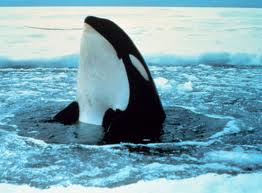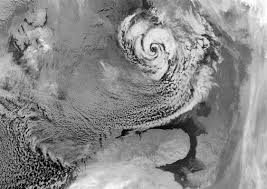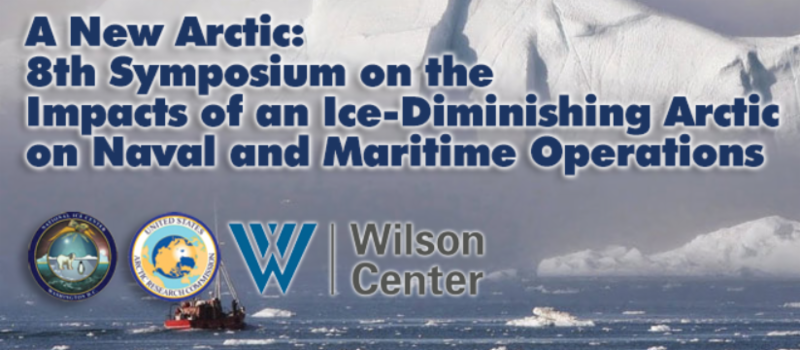|
|
|
|
|
|
|
|
|
 Alaska Marine Science Symposium, January 28 - Feb. 1 (Anchorage, AK). For over 20 years, Alaska's premier marine research conference brings together scientists, educators, resource managers, students, and interested public to discuss the latest marine research being conducted in Alaskan waters. About 700 people are expected to attend this 4-day long, annual conference. Each day of the conference highlights Alaskan marine ecosystems: Gulf of Alaska (Tuesday), Bering Sea & Aleutian Islands (Wednesday), and the Arctic (Thursday). Research topics discussed range from ocean physics, fishes and invertebrates, seabirds, marine mammals, to local traditional knowledge. Since its inception, NPRB has been a proud sponsor and one of the leading organizers of AMSS. USARC is a co-sponsor of this event. Alaska Marine Science Symposium, January 28 - Feb. 1 (Anchorage, AK). For over 20 years, Alaska's premier marine research conference brings together scientists, educators, resource managers, students, and interested public to discuss the latest marine research being conducted in Alaskan waters. About 700 people are expected to attend this 4-day long, annual conference. Each day of the conference highlights Alaskan marine ecosystems: Gulf of Alaska (Tuesday), Bering Sea & Aleutian Islands (Wednesday), and the Arctic (Thursday). Research topics discussed range from ocean physics, fishes and invertebrates, seabirds, marine mammals, to local traditional knowledge. Since its inception, NPRB has been a proud sponsor and one of the leading organizers of AMSS. USARC is a co-sponsor of this event.
|
Media
 There are 'Superbug' Genes in the Arctic. There are 'Superbug' Genes in the Arctic. They Definitely Shouldn't be There. A "superbug" gene that was first detected in India - and allows bacteria to evade "last resort" antibiotics - has now been found thousands of miles away, in a remote region of the Arctic, according to a new study. The findings underscore just how far and wide antibiotic resistance genes have spread, now reaching some of the most far-flung areas of the planet. Live Science
A Fading Culture Adapts to the Changing Times in this Arctic Town. We were eating more than I thought possible, including jellied whale casserole and fresh apricot buns, while Elizaveta Dobrieva's family explained that their ancestors descended from the polar bear and the killer whale. Then Elizaveta disappeared into the back room of her apartment in Lavrentiya, Chukotka, and came back cradling a dark wooden carving. Its eyes slanted down to a long nose, and many thin vertical lines extended below the chin. Elizaveta told me that the lines represent tattoos and indicate that this figure is a woman. National Geographic
American Indian/ Alaska Native Clinical & Translational Research. The American Indian/Alaska Native Clinical and Translational Research Program (AI/AN CTRP) is soliciting proposals from investigators to support and develop research programs relevant to AI/AN health disparities in Montana and Alaska. The AI/AN CTRP has the goal of developing the capacity of several Montana and Alaska institutions to address health disparities faced by Native communities in these states. Applications are due March 20, 2019 (for new & revised proposals) and April 10, 2019 (for competitive renewals). Award amounts will be up to $100,000, to be spent by July 31, 2020. Montana State University
 Rapidly Receding Glaciers on Baffin Island Reveal Long-covered Arctic Landscapes. Rapidly Receding Glaciers on Baffin Island Reveal Long-covered Arctic Landscapes. The study, published today in the journal Nature Communications, uses radiocarbon dating to determine the ages of plants collected at the edges of 30 ice caps on Baffin Island, west of Greenland. The island has experienced significant summertime warming in recent decades. "The Arctic is currently warming two to three times faster than the rest of the globe, so naturally, glaciers and ice caps are going to react faster," said Simon Pendleton, lead author and a doctoral researcher in CU Boulder's Institute of Arctic and Alpine Research (INSTAAR). Science Daily
Bowdoin to Build Barry Mills Hall and New Center for Arctic Studies. ... The Center for Arctic Studies. The study of the Arctic has a long and broadly interdisciplinary history at Bowdoin College. It includes the work of faculty teaching and conducting scholarship in areas such as government and legal studies, environmental studies, earth and oceanographic science, marine science and ecology, anthropology, economics, art, history, and physics. The new Center for Arctic Studies will stand with Bowdoin's Roux Center for the Environment and the Schiller Coastal Studies Center in Harpswell as significant and unique facilities for the interdisciplinary teaching and study of the environment, the Arctic, and the North Atlantic region, and it will provide new teaching and laboratory spaces to encourage, enhance, and expand collaborative work among faculty, students, and visiting researchers focused on this increasingly important region of the world. Bowdoin
 Killer Whales are Moving Northward into Pacific Arctic, Possibly Spelling Trouble for Local Mammals Killer Whales are Moving Northward into Pacific Arctic, Possibly Spelling Trouble for Local Mammals. Orcas aren't necessarily new to the Chukchi Sea, which lies just north of the Bering Strait between Alaska and Russia. But the whales were only occasionally seen in the area and only for the warmest few weeks of late July and early August. That may be bad news for marine mammals in these areas, and climate change seems to be to blame. In a new study in Marine Mammal Science, a researcher reports detecting acoustic recordings of the clicks and whistles of killer whales in the Chukchi Sea as early as 1 June, and as late as 16 November. The percentage of days when killer whale calls were detected in the southern Chukchi Sea-from September to November-also increased from about 10% in 2009 to about 30% in 2015. Science
New Study Reveals Local Drivers of Amplified Arctic Warming. The Arctic experienced an extreme heat wave during February 2018. The temperature at the North Pole soared to the melting point of ice, which is about 30 to 35 degrees (17-19 Celsius) above normal. Recent studies indicate the mass of Arctic glaciers has declined significantly since the 1980's by more than 70%. These sudden climatic changes affected not just the Arctic regions, but also the water, food and energy security nexus throughout the globe. This is why climate scientists around the world are paying increasing attention to this accelerated warming pattern, commonly referred to as "Arctic amplification." Phys.org
Scientists Identify Two New Species of Fungi in Retreating Arctic Glacier. The scientists published their results on DATE in two separate papers, one for each new species, in the International Journal of Systematic and Evolutionary Microbiology. "The knowledge of fungi inhabiting the Arctic is still fragmentary. We set out to survey the fungal diversity in the Canadian High Arctic," said Masaharu Tsuji, a project researcher at the National Institute of Polar Research in Japan and first author on both papers. "We found two new fungal species in the same investigation on Ellesmere Island." Science Daily
 How Arctic Cyclones Change the Sea Ice. How Arctic Cyclones Change the Sea Ice. Scientists have observed for some time that the level of sea ice concentration tends to increase shortly after an Arctic cyclone passes over. But in August of 2012, the powerful Great Arctic Cyclone traversed the entire Arctic. Shortly after its passage, scientists recorded the lowest sea ice levels ever, so they thought that the cyclone may have contributed to the sea ice loss. This conundrum sparked the interest of Erika A. P. Schreiber, a graduate student with the National Snow and Ice Data Center (NSIDC) at the University of Colorado Boulder, and her supervisor, Mark Serreze. EOS
|
|
Future Events
** New this week ** The Future of the Arctic, January 29, 2019 (News program). Alaska Public Radio's Talk of Alaska will host this program with chair of the US Arctic Research Commission Fran Ulmer. The Arctic is changing and what that means for future development, travel, infrastructure and safety is on the minds of not only those who live there, but scientists, policy makers and business leaders. What does smart and sustainable development look like for this remote region and who should make those decisions?
One relevant session at the AAAS annual meeting.
Arctic sciences are at the forefront of discovery resulting from research that engages indigenous knowledge and connects to policy decisions about the region. This session brings together speakers from various disciplines representing multiple organizations to discuss recent achievements in Arctic sciences with respect to fundamental and policy-focused interdisciplinary and international research. Topics to be addressed include examples of Arctic-based research that crosses regional and disciplinary boundaries, and the key methodological strengths of this research, as well as how Arctic-based research could contribute to disciplines and research in other regions, and the role of funding agencies in advancing this exchange.
 Three Arctic-themed talks in the session "Science in the New Arctic: The Converging of Natural and Social Sciences," organized by Andrey Petrov and Jack Kaye, moderated by Jessica Graybill, and with John Farrell as Discussant. The talks are "Indigenous Knowledge and Interdisciplinary Science in the Arctic" (Carolina Behe), "Towards Knowledge Co-production in the Arctic" (Dmitry Streletskiy) and "Enhancing International Research in the Arctic" (Paul Berkson).
 of the AAG includes over 8,500 geographers converging from the U.S., Canada, and nearly 60 other countries in a typical year including geographers, GIS specialists, environmental scientists, and other leaders for the latest in research and applications in geography, sustainability, and GIScience. of the AAG includes over 8,500 geographers converging from the U.S., Canada, and nearly 60 other countries in a typical year including geographers, GIS specialists, environmental scientists, and other leaders for the latest in research and applications in geography, sustainability, and GIScience.
 The 6th Annual Arctic Encounter Seattle, April 25-26, 2019 (Seattle, WA, USA). The sixth annual Arctic Encounter Seattle will engage the topic of innovation in the Arctic, specifically disruptive business and investment models, energy and power, climate research, national security, new economic and trade models, and popular media and awareness movements impacting the Far North. The 2018 Arctic Encounter Seattle drew over 300 participants from across Alaska, the U.S., and the world, including over 100 speakers, 32 sponsors, 11 media partners, fashion and photography installations, a live permafrost exhibition, 13 guest performers, fashion designers, and artist exhibitors to the downtown Seattle waterfront at Pier 66. The 2019 Arctic Encounter Seattle expects to increase engagement in new sectors and engage participants through policy debates, research presentations, performances, and more. The two-day Arctic Encounter Seattle will include an opening reception, two continental breakfasts, two keynote luncheons, a networking reception with Alaskan glacier ice cocktails, and a seated three course dinner including keynotes and live musical entertainment from the Far North. The Arctic Encounter is the largest annual Arctic policy and business conference convening in the United States, with partnerships and convening efforts worldwide. The 6th Annual Arctic Encounter Seattle, April 25-26, 2019 (Seattle, WA, USA). The sixth annual Arctic Encounter Seattle will engage the topic of innovation in the Arctic, specifically disruptive business and investment models, energy and power, climate research, national security, new economic and trade models, and popular media and awareness movements impacting the Far North. The 2018 Arctic Encounter Seattle drew over 300 participants from across Alaska, the U.S., and the world, including over 100 speakers, 32 sponsors, 11 media partners, fashion and photography installations, a live permafrost exhibition, 13 guest performers, fashion designers, and artist exhibitors to the downtown Seattle waterfront at Pier 66. The 2019 Arctic Encounter Seattle expects to increase engagement in new sectors and engage participants through policy debates, research presentations, performances, and more. The two-day Arctic Encounter Seattle will include an opening reception, two continental breakfasts, two keynote luncheons, a networking reception with Alaskan glacier ice cocktails, and a seated three course dinner including keynotes and live musical entertainment from the Far North. The Arctic Encounter is the largest annual Arctic policy and business conference convening in the United States, with partnerships and convening efforts worldwide.
Save the Date! 
Mark your calendars to attend IDA-8, which some have called one of the best Arctic gatherings around. Historically, this biennial symposium was co-hosted by U.S. National/Naval Ice Center (NIC) and the US Arctic Research Commission (USARC). In 2019, these partners will join forces with the preeminent Wilson Center's Polar Institute, as a third co-host. The now 2-day symposium will be held in the Ronald Reagan Building Amphitheater, in Washington, DC. The event will focus on a broad cross-section of naval and maritime operations and issues in an ice-diminishing Arctic. The symposium brings together nationally and internationally recognized experts on Arctic governance, geopolitics, marine operations, infrastructure, science, and environmental observations, from the local, regional, and pan-Arctic scale. Information on prior symposia, including lists of speakers, video clips, and copies of presentations, is available here. Attendance is free, and registration will begin in Spring 2019. The event will be webcast live, and video recorded.
|
|

  
4350 N. Fairfax Drive, Suite 510
Arlington, VA 22203, USA
External links in this publication, and on the USARC's World Wide Web site ( www.arctic.gov) do not constitute endorsement by the US Arctic Research Commission of external Web sites or the information, products or services contained therein. For other than authorized activities, the USARC does not exercise any editorial control over the information you may find at these locations. These links are provided consistent with the stated purpose of this newsletter and the USARC Web site.
|
|
|
|
|
|
|
|
|